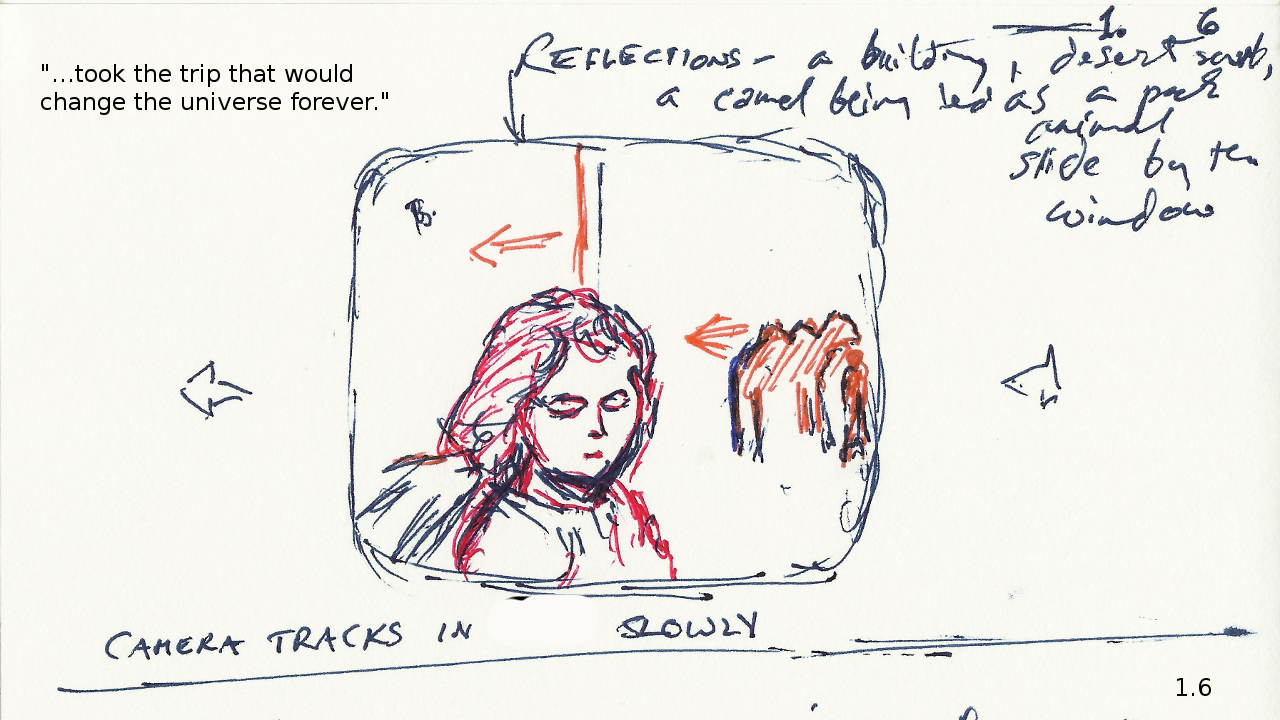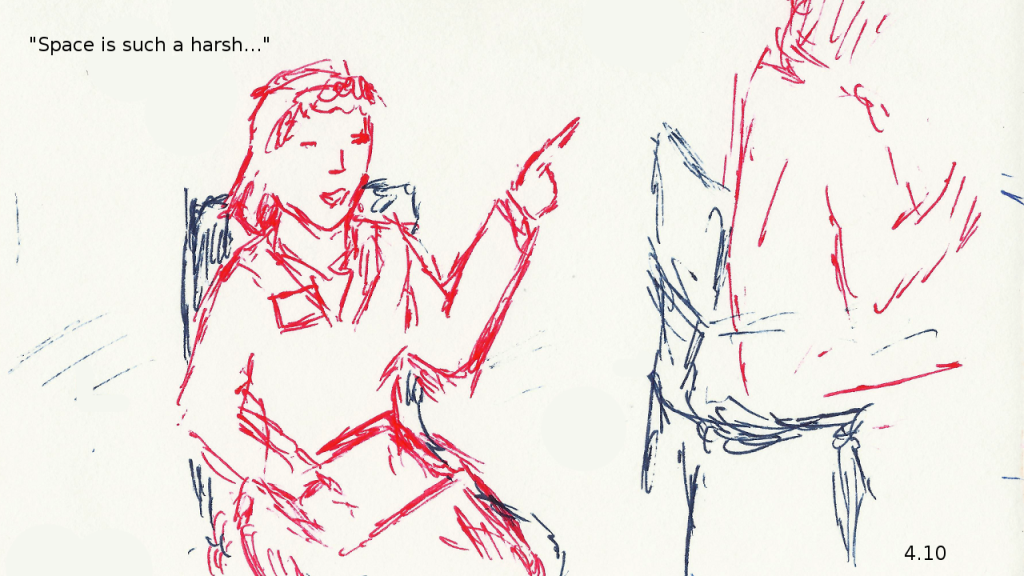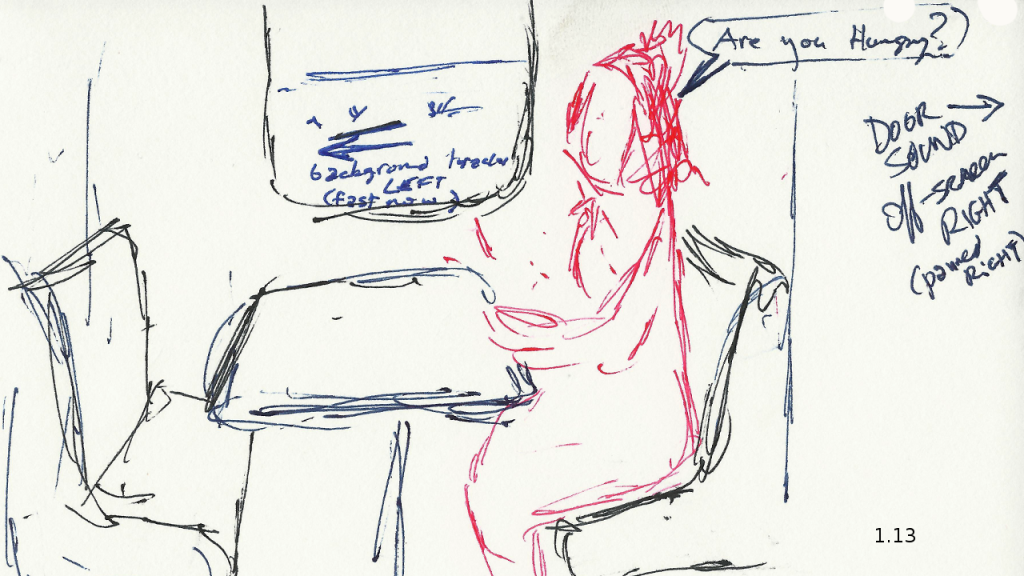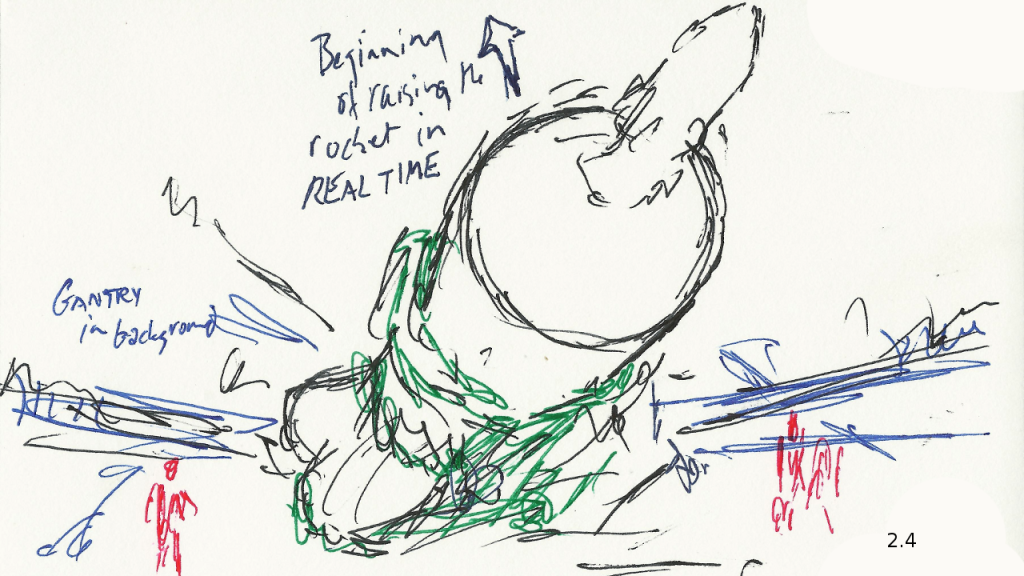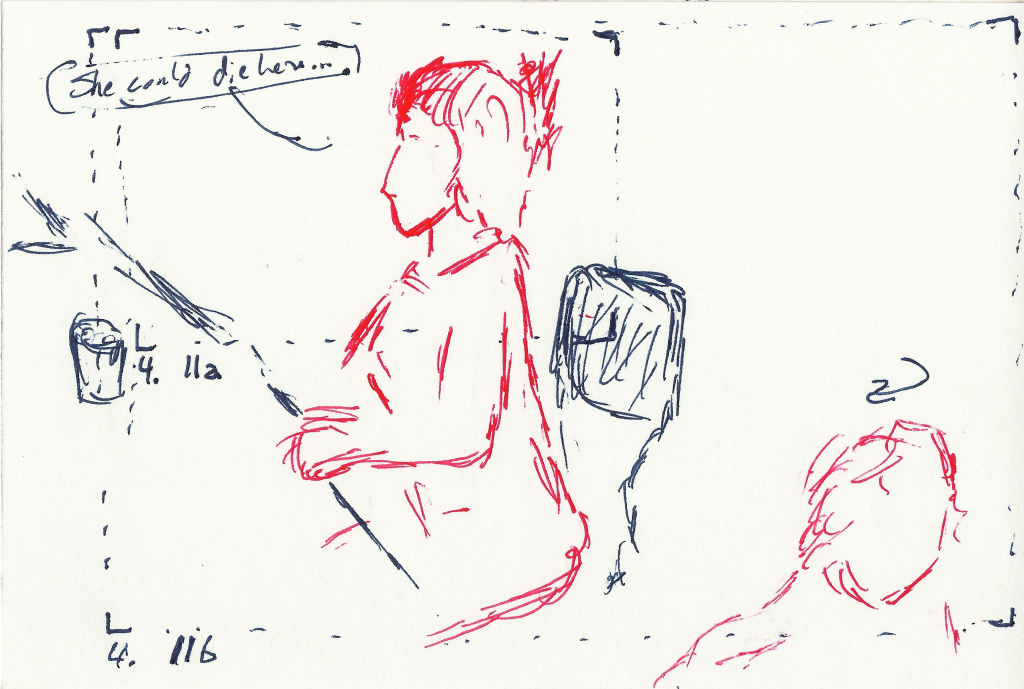Here’s a little information about my storyboard and animatic process, since that’s what I’ve been working on today. This is not the animatic we’re advertising as a goal of this Kickstarter — these are the sketches that I make myself. To keep clear which is which, I call this my “sketchy-matic”, since my storyboards are pretty sketchy.
I start with 4″x6″ plain index cards, which I draw on with colored pens. The drawings are very sketchy because 1) I’m not a great comic artist and 2) because it only really has to communicate what’s in the shot, so it’s not necessary to have a whole lot of detail.
One of the better likenesses in my storyboards — but still quite sketchy 🙂
To make things a little clearer, though, I use color coding for the different elements. Usually:
RED is the characters.
BLACK (or dark blue) is the main focus of the shot (foreground objects).
BLUE is the far-field — usually stuff seen through a window or in the distance behind the shot, this may or may not be in focus
ORANGE is stuff that is seen in reflection from a surface in the shot
And I’ve occasionally used other colors such as green to distinguish an important elements of the shot.
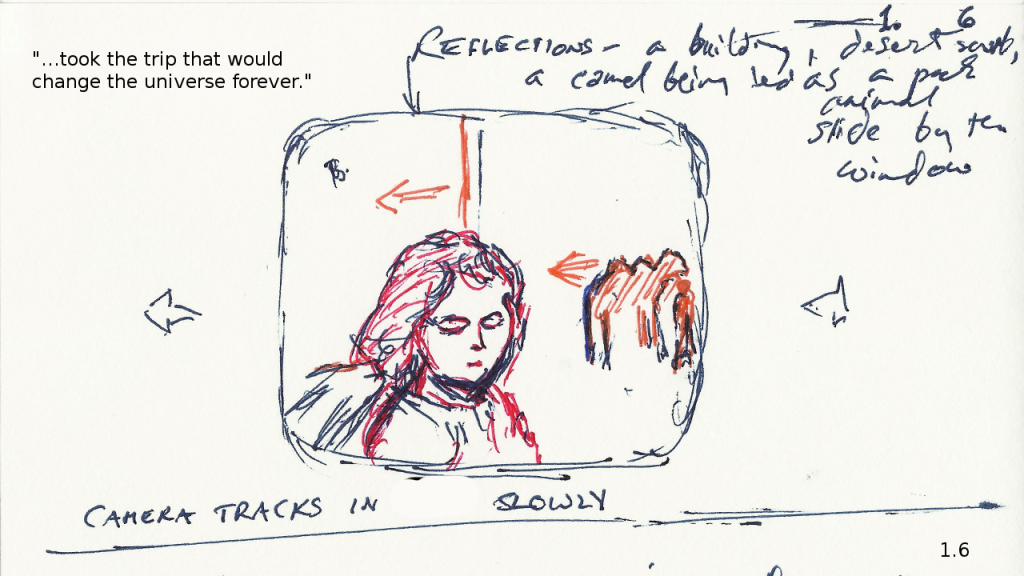
Of course, storyboards are easiest when you have static shots where neither the camera nor the subject move very much. But you can indicate more complex motions with arrows, and on the computer, I can actually draw a “plate” and pan across the drawing when I create the animatic from the storyboards.
I then scan these cards in, do some post processing (you can see where I’ve replaced some of the writing or cleaned up the drawing a little), and then they can be assembled in Kdenlive (the main video editor we’ve been using on this project) to make a quick mock-up of the story — that’s the “sketchy-matic”.
Afterward, for this project, I’ll hand my drawings and animatic over to Timothée Giet, who is quite a bit better as a storyboard artist and animator. He’ll typically do quick paintings of these in Krita and then do simple animation in Synfig Studio.
This is how the Soyuz on the transporter in the “Lubo” video was made, for example:
Unfortunately, we don’t have that many examples of Timothée Giet’s wiork up yet because he’s working on another project this month, but he’ll be able to work on “Lunatics” in October if this Kickstarter campaign succeeds. You can see some of his previous work on his website, though.
Last day! Kickstart status: 62% from 58 backers. About $1600 left to raise. Ends midnight tonight CDT. Will we make it? I don’t know. I hope! It all depends on sharing it with as many people as we can.
